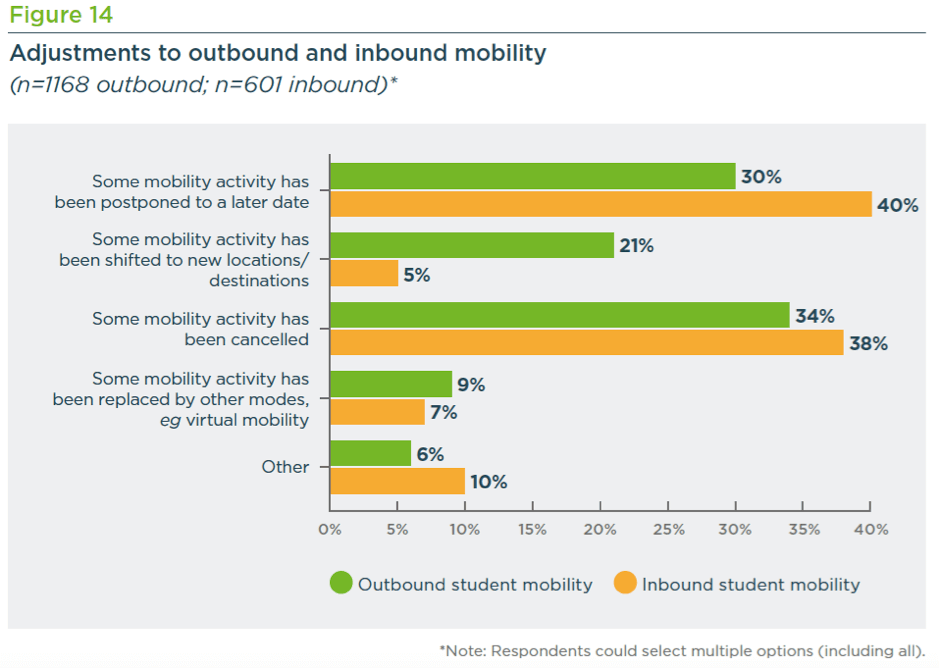Stay in the loop! Subscribe to our mailing list
A new publication authored by Laura E. Rumbley, of the European Association for International Education (EAIE) gives first insights into the response of European higher education institutions (HEIs) to the COVID-19 outbreak, as well as into the latter’s evolving impact on international higher education activities. The report – Coping with COVID-19: International higher education in Europe – is informed by 805 responses, primarily from staff members or heads of international offices (two thirds of respondents) based in 628 different HEIs in 38 European countries. The responses were provided to an EAIE-run online survey, in the period 19 February – 6 March 2020.
The findings account for the early effects that European HEIs have seen on student and staff mobility, campus life and culture, as well as on the daily institutional work on internationalization, with these developments likely to have fast-evolved from mid-March onwards.

In the wider, crisis management framework, the report points to little specific mention of data collection as a key strategic response. Few respondents mentioned some aspect of data collection, surveying or systematic “mapping” of situations in relation to the COVID-19 outbreak, although such information would be critical for risk mitigation and for the articulation of good practice models.
As a follow-up to the report, the EAIE points to developing plans for a webinar series that will address key areas of interest, such as sustaining an international office online, fostering individual and community well-being in challenging times, and looking beyond the immediate challenges toward longer-term planning and considerations.
The full report can be downloaded via the EAIE website.